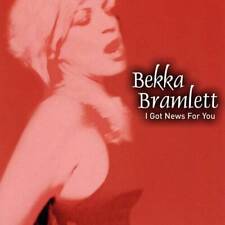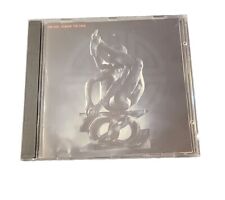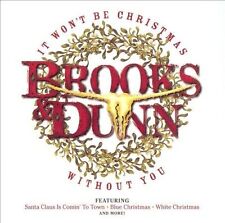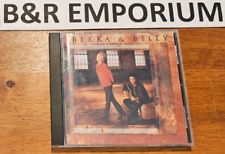|
1973
Dissatisfied Back from yet another round of touring, the band entered the studio in January. Out of these session grew Penguin , an album that showed the continuing trend that America was more interested in the lastest goings-on of Fleetwood Mac than Britain (who still mourned the loss of Peter Green). It totally failed to chart in the UK, but climbed to a very respectable #49 in the US Billboard album charts. As might be expected, Welch and Christine McVie dominate the procedings. Christine for her part coming up with some of the most memorable songs to date of her career (like the excellent "Remember Me" and "Dissatisfied"). Welch's forays into esoterica continued with such songs as "Revelation" and "Night Watch" (the latter track also features some fiery lead guitar from Peter Green who had been coaxed out of retirement, but whose presence remained uncredited. Perhaps if his name had appeared on the jacket, this album would not have been so ignored by the British public). Another excellent track was a rare Welch-McVie collaboration, "Did You Ever Love Me", in which Christine trades lead vocals with Bob Weston (not Welch). Unfortunately, although "Remember Me" and "Did You Ever Love Me" were both released as singles, they failed to make a scratch in either market. The two newcomers also contributed to the effort, with Weston coming up with the beautiful acoustic guitar piece "Caught In The Rain", and Walker performing two songs (a miniscule amount for a supposed "lead vocalist"). One of these was an unusual choice for a Fleetwood Mac record: the old Jr. Walker and the All-Stars' soul classic "(I'm A) Road Runner". The other was penned by Dave Walker himself, the inauspicious "The Derelict", which would have fit perhaps better in the context of the band's earlier blues period, what with Walker blowing harp and contributing somewhat cheap-imitation Peter Greenesque lyrics. While America seemed to be getting into the new material (with Penguin reaching #49 on the Billboard album charts--the highest thus far in the US), Britain still longed for the old. In fact, a rereleased "Albatross" reached #2 in the UK charts in June 1973, over four years after its initial release! Not only did the band have to endure requests for this "new" hit single in their European gigs, but also had to endure the fact that when the old film clip for "Albatross" was aired on Top Of The Pops it was accompanied by the announcement that Fleetwood Mac had broken up! To be fair, the band also had to endure its share of problems in America: in April, the audience and band were tear-gassed at a festival in Stockton, California. Further attempts to realize success from the back catalog included reissues of "Oh Well/The Green Manalishi" (from Warner/Reprise, a reissue done the previous year in America) and "Black Magic Woman" (from CBS). Both efforts failed to chart (the latter probably because it was too closely associated with Santana by this time). Undaunted, the band continued to gig, and begin working on new material for the next LP. It was at this point that the band decided that Dave Walker just had to go. Not that he failed to get along with the rest of the band, or that he was an uninspiring performer, it was simply a matter of him not fitting with the direction the band was taking. To paraphrase Fleetwood, having a front-man like him in the band was tantamount to throwing away all that the band was: that it wasn't Savoy Brown. He also failed to provide much in the way of new material ("The Derelict" notwithstanding), in fact much effort had to be spent by Christine McVie and Welch tailoring some of their songs to fit Walker's vocals while all Walker did was head down to the pub with John McVie. An amicable parting was arranged, and the remaining five members settled back down to work on Mystery To Me . During these particularly lean times in the band's history, Mystery To Me stands out like a jewel. Like Then Play On , it contained some truly classic songs, and like it it showed how adept this particular version of the band was at a variety of musical styles. Mystery To Me is, however, a much more cohesive record than Then Play On . The energy of the group is more focused. The feeling generated is that the band is playing more with the singer/writer rather than for the singer/writer. Nowhere is this more evident than Welch's "Hypnotized" (the third of the pre- Buckingham/Nicks period American FM radio classics), a song ostensibly about a UFO sighting but taking on a much more ethereal mood. Also deserving mention are Christine McVie's "Just Crazy Love" and the reggae-influenced "Why", and Welch's "Emerald Eyes" and "Miles Away". Another Welch song, "Good Things (Come To Those Who Wait)" was dropped at the last minute (but not before thousands of record sleeves and lyric inserts had been printed) in favor of a song suggested by Weston, the Yardbirds' "For Your Love", which was also released as a single. "Good Things (Come To Those Who Wait)" was never released as a Fleetwood Mac track, but the song resurfaced (albiet in much-altered form) as "Don't Wait Too Long" for Welch's 1979 album Three Hearts . Original versions of Mystery To Me were released with sleeves showing "Good Things" and the lyric inserts also include that song. Later editions correctly list "For Your Love", but the lyric inserts are deleted altogether. Like its immediate predecessors, this album (and single) was all but ignored in England. However, in America it was a different story: so far each album had sold more that the previous one, and the highest chart positions, while variable, remained well within the Top 100. Mystery To Me was no exception. By this time, the band was moving somewhere in the neighborhood of 250,000 albums, certainly a respectable number, and this one reached as high as 67. In the reissue department, more "British Blues Boom" records were released stateside. In January, London released the double-LP, Down The Line. Disc one is essentially a compilation album of oft-rereleased Mayall tracks, but record two is noteworthy since it marks the US debut of Mayall's first album, Mayall.htm">John Mayall Plays John Mayall , eight years after its UK release. Another compilation, History of British Blues--Vol. 1, features cuts by a variety of Mike Vernon-produced artists, including Fleetwood Mac, Christine Perfect, Mayall, Gordon Smith and The Aynsley Dunbar Retaliation, several of which had never previously been released. Another album, The Best Of B.B. King (released as ABC ABCX 767, later as MCA 3276, and in Britain as ABC 5026), features the track on which Peter Green played (from the 1971 album B.B. King In London ), "Caldonia", but is listed as running 3:20 (as opposed to 4:00 on the original release) with all of the personnel listed as on the first release except Green. A note is included in the liner notes: "At the request of a participating artist, this is a shortened version of the master originally released." His playing was deleted from the mix, apparently at Green's own insistence, a sad statement to his career--and state of mind--eclipse. Fellow veteran British blues/rocker, ex-Ten Years After guitarist Alvin Lee reemerged late in the year with partner Mylon Lefevre for the album On The Road To Freedom , which featured a song by Mick Fleetwood's wife Jenny's brother-in-law, George Harrison. On "So Sad (No Love Of His Own)", Mick plays drums and the former Beatle contributes guitars and vocals. The year 1973 also marked the beginning of the recording careers of two individuals who were to have, without a doubt, the greatest impact on both the commercial appeal and artistic legacy of the band: Lindsey Buckingham and Stevie Nicks. Buckingham, a Bay Area native (whose brother Greg won a silver medal in the 1968 Olympics), was born on October 3, 1949, in Atherton, California. Nicks, the daughter of a Greyhound Bus Lines executive, was born in Phoenix, Arizona, on May 26, 1948. They went to the same high school; their musical careers beginning in the late 'sixties when they were the bass player and singer in a local band, Fritz. That band had a rather large regional following, opening up for such acts as Jefferson Airplane and Janis Joplin's Big Brother And The Holding Company, but no recorded output. When Fritz folded in 1971, Nicks and Buckingham moved in together and continued to work on each other's music. Heading down to Los Angeles a year later, they eventually teamed up with sound engineer and producer Keith Olsen, who got them a deal with a small label, Anthem. When that outfit folded, one of Anthem's owners got them a one-off deal with Polydor Records. They entered the studio in the spring and recorded their debut album, titled simply Buckingham Nicks . This album, unfortunately lost among scores of other singer-songwriters (this being the age of Carole King, Carly Simon, and James Taylor, after all) anxious for a break, is an interesting debut. Buckingham Nicks showcases Nicks' as-yet underdeveloped melodic, almost hallucinogenic, vocal and lyrical style, and Buckingham's distinctive playing, songwriting, and (uncannily like Danny Kirwan) perfectionism in the studio. It contains all originals except John Lewis' "Django", an instrumental nod to jazz great Django Reinhardt, effectively demonstrating Buckingham's unique finger-picking style. Other highlights include "Crystal", a song that eventually would be rerecorded in 1975 with Fleetwood Mac, and "Don't Let Me Down Again", the first single, which demonstrates the duo's skills at harmonization. The cover was also a surprise--with its nude-from-the-waist-up black-and-white photo of the couple. But even this did nothing to boost the record's sales (it wasn't even released in Britain until 1977), and since they had no touring band, it was next to impossible to get gigs to support the album.
|









